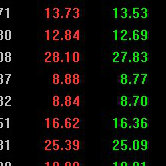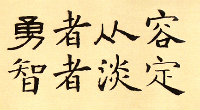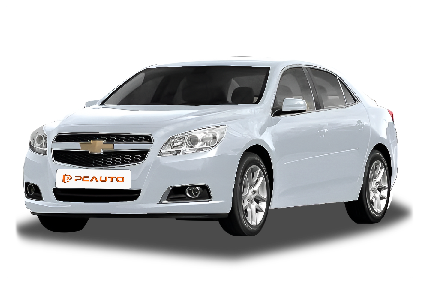Q
What's a 2014 Malibu worth?
If you're scouring the Malaysian used car market for a 2014 Chevrolet Malibu, you'll typically find prices hovering between RM40,000 to RM60,000. Of course, the exact figure hinges on factors like overall condition, mileage, trim level, and service history. Back in the day, this midsize sedan was all about comfort and practicality, packing either a 2.0L or 2.4L engine paired with a 6-speed automatic transmission. Fuel economy is pretty average, but that's par for the course—this one's a solid choice for family runabouts.
Step up to the LTZ trim, and you're looking at extra goodies like leather seats or a sunroof, which will naturally nudge the price north. Pro tip for buyers: Always get a PUSPAKOM inspection to check the engine and gearbox health, and don't skip a thorough accident history check. Malaysia's hot and humid weather can be tough on rubber components too, so pay extra attention to the condition of chassis bushings and the air conditioning system—you don't want to end up sweating it out later.
Sure, its Japanese rivals like the Honda Accord or Toyota Camry tend to hold their value better in the used market, but the Malibu's American-tuned chassis still has a trick up its sleeve: superior high-speed stability. If your budget is tight but you've got a soft spot for that American ride feel, this Chevy might just be worth adding to your shortlist.
Special Disclaimer: This content is published by users and does not represent the views or position of PCauto.
Related Q&A
Q
How much is a 2014 Chevy Malibu transmission?
The cost of a transmission for a 2014 Chevrolet Malibu can vary pretty widely depending on a few key factors: what type of transmission it is (like the 6-speed automatic), whether it's brand-new, remanufactured, or used, and where you end up buying it—think dealership, third-party supplier, or even a junkyard for a used unit. Here in Malaysia, if you're looking at a brand-new OEM transmission, you're probably looking at a price tag between RM8,000 and RM15,000. If you go the remanufactured or used route, you might be able to bring that down to around RM4,000 to RM8,000. But remember, that price usually doesn't include the labor cost for installation, which can add another RM1,000 to RM2,500, plus any extra parts that might be needed along the way.
My advice? Head to a Chevrolet authorized service center or a reputable transmission specialist shop to get a solid, accurate quote—they’ll know exactly what you need. And don’t sleep on regular maintenance! Changing your transmission fluid every 60,000 to 80,000 kilometers can really help extend its life. If you start feeling rough shifts or delays when changing gears, get it checked out ASAP. Small issues can turn into big, expensive problems fast if you ignore them. Also, with Malaysia’s hot and humid weather, keeping an eye on your cooling system is crucial—transmissions hate overheating, so make sure that system’s in good shape to keep things running smoothly.
Q
How much does a used Malibu cost?
In Malaysia, the price of a used Chevrolet Malibu can vary quite a bit depending on factors like the car's age, mileage, condition, and specs. Generally, you're looking at a range of around RM60,000 to RM120,000. For example, models from 2016 to 2018 with 50,000 to 80,000 kilometers on the clock tend to go for about RM70,000 to RM90,000. The newer ones, from 2019 to 2021, might set you back over RM100,000. When buying a used car, it's a good idea to check the service records and accident history. Sticking with reputable used car dealers or certified platforms can also help protect your interests.
The Chevrolet Malibu, as a midsize sedan, has its fans thanks to its comfort and space. But here's the thing to note: American used cars in Malaysia can come with higher maintenance costs and parts might be a bit harder to source. So, it's smart to scope out the service situation at nearby repair shops beforehand. Also, Malaysia's used car loan policies usually let you borrow 70% to 90% of the car's appraised value. The interest rate depends on the bank and your credit score, so shopping around before you buy could save you some cash.
Q
What engine does a 2014 Chevy Malibu have?
The 2014 Chevrolet Malibu hits the Malaysian market with two solid engine choices: a 2.5-liter naturally aspirated four-cylinder and a 2.0-liter turbocharged four-banger. The 2.5L puts out around 197 horsepower and 253 Nm of torque, which is perfect for your everyday commute and city driving needs. On the flip side, if you're craving more punch, the 2.0L turbo steps things up big time with a meaty 259 horsepower and a healthy 353 Nm of torque – that one's for the drivers who like a bit more fun behind the wheel. Both engines are mated to a 6-speed automatic transmission, delivering smooth shifts and decent fuel efficiency, which is always a plus. For Malaysian buyers, the 2.5L makes the most sense for daily city runs, while the 2.0L turbo is your go-to if you spend a lot of time on the highway or enjoy the occasional long road trip. It's worth noting that turbocharging tech is pretty much the norm these days in modern cars – it's a smart way to squeeze more power without bumping up engine size, all while keeping fuel consumption in check. No wonder so many automakers are jumping on that bandwagon.
Q
Do Malibus hold their value?
The Chevrolet Malibu holds its value moderately well in the Malaysian market, with used car prices varying significantly based on factors like model year, trim level, mileage, and service history. As an American midsize sedan, it doesn't quite match the local visibility of its Japanese or German rivals, but its solid chassis tuning and spacious interior still appeal to a specific group of buyers. When properly maintained and in good condition, a 3-5 year-old Malibu typically retains around 50-60% of its original value. It's worth noting that Malaysian consumers generally prefer fuel-efficient and reliable Japanese cars, which indirectly impacts the resale market for American models. We'd advise owners to keep complete service records and avoid extensive modifications—both go a long way in preserving residual value. Additionally, sticking with popular colors like white or silver can help when it comes time to sell. Overall, while the Malibu isn't a top performer in terms of depreciation, it remains a practical choice for buyers who prioritize comfort and value for money.
Q
How fast can a 2014 Chevy Malibu go?
The 2014 Chevrolet Malibu tops out at around 201 km/h (125 mph), though actual performance hinges on the engine under the hood. Over in Malaysia, you'll typically find it packing either a 2.5L four-cylinder or a punchier 2.0L turbo – that turbocharged mill definitely delivers the stronger kick. For Malaysian drivers, that kind of speed is more than enough for highway jaunts, but remember to keep an eye on local limits, which usually cap out at 110 km/h on the expressways.
Beyond straight-line speed, the 2014 Malibu earns props for its comfy suspension and roomy cabin, making it a solid pick for families. Fuel economy isn't too shabby either; the 2.5L version sips around 8.7 liters per 100 km in mixed driving. If you're scoping out a used one, do yourself a favor and check the engine service records and transmission condition. Running it hard at high revs over time can take a toll on the powertrain, and Malaysia's hot climate is tough on cooling systems too – so regular coolant changes are a must.
Q
How long can Malibu last?
The lifespan of a Chevrolet Malibu in Malaysia really boils down to how well you maintain it, your driving style, and the road conditions it's exposed to. Stick to the manufacturer's recommended service schedule—like getting the oil changed every 5,000 to 10,000 km and having key components inspected regularly—use genuine parts, and avoid aggressive driving, and you're looking at a solid 200,000 to 300,000 km or even 15+ years on the road. Malaysia's tropical heat can be tough on rubber parts like belts and bushings, as well as electrical components, so it's smart to shorten inspection intervals, pay extra attention to rust prevention, and try to park in covered spots to shield it from harsh sunlight and rain.
Under the hood, the Malibu's ECOTEC engine is pretty tried-and-true, and paired with either the 6-speed or 9-speed automatic transmission, it delivers a balanced level of reliability for a midsize sedan. That said, as it racks up the kilometers, keep a close eye on the cooling system and transmission fluid condition—those are key areas to watch. For Malaysian buyers, if you're scouring the used car market, post-2015 Malibus tend to hold up better over time thanks to more advanced direct-injection tech and improved anti-corrosion treatments. And making a habit of taking it to authorized service centers for computer diagnostics can help catch potential issues before they turn into big problems.
Bottom line? A car's longevity is *heavily* tied to its service history. Keeping complete maintenance records isn't just about extending its life—it'll also give your Malibu a much better resale value down the line.
Q
How long does a Malibu engine last?
The Chevrolet Malibu's engine typically lasts between 200,000 to 300,000 kilometers, depending on regular maintenance and driving habits. Malaysia's tropical climate can take a toll on the engine cooling system and rubber components, so it's advisable to replace coolant regularly and check hose sealing performance to extend engine life. Good maintenance practices like timely oil changes, using the right viscosity lubricants, and avoiding prolonged high-rev driving can significantly boost engine durability. Also, Malaysia's rainy and humid conditions tend to cause electrical and sensor issues, making regular checks of these parts important too. It's worth noting that turbocharged models require more frequent oil changes and cooling system maintenance to keep the turbo running properly. For Malaysian owners, choosing original or high-quality maintenance parts and following the manufacturer's recommended service intervals are key to keeping the engine running smoothly for the long haul.
Q
Are 2014 Malibu reliable?
The 2014 Chevrolet Malibu lands somewhere in the middle of the pack when it comes to reliability. From what owners and expert reviews tell us, the 2.5L four-cylinder and 2.0L turbocharged engines are pretty solid pieces of kit – they've been around the block, so failure rate is relatively low. However, some owners have mentioned experiencing occasional rough shifting or hesitation from the transmission, especially at lower speeds. If you're a Malaysian looking at a used Malibu, I'd strongly advise giving the transmission a thorough check and going through the service records with a fine-tooth comb. Also, the car's electronic systems, like the touchscreen, can sometimes feel a bit laggy. And given our tropical climate here, don't skimp on maintaining that air conditioning system – it's a must.
On the upside, the Malibu does have good body rigidity, and back in the day, its standard six airbags and stability control system were right up there with the safety standards. It makes for a decent family car. Now, for Malaysian buyers, Japanese alternatives from the same year, like the Camry or Accord, might have a slight edge when it comes to sheer long-term durability. But the Malibu often comes with a more attractive price tag on the used market. If your budget is tight and you're okay with potentially slightly higher maintenance costs, it's still a contender worth considering. Just make sure you prioritize examples with complete service histories, and keep up with regular transmission fluid changes – that'll help keep it running smoothly for longer.
Q
Why does a 2014 Malibu have two Batteries?
The 2014 Malibu's dual-battery setup is all about supporting its advanced Start-Stop System. Here's how it works: when you pull to a temporary stop, the engine shuts off automatically to save fuel, then fires right back up as soon as you lift off the brake. The main battery handles the regular electrical demands—think starter motor and lights—while the auxiliary battery is dedicated solely to the Start-Stop function. This separation ensures those frequent restarts don’t disrupt other electronics, which is a big deal in a hot climate like Malaysia. High temperatures really take a toll on batteries, so having two batteries helps extend the overall electrical system’s lifespan and keeps things more reliable.
You’ll see similar setups in other hybrid or fuel-efficient models too. Some European cars, for example, pair a lithium battery with a traditional lead-acid one to handle the higher charge-discharge cycles. If you’re a Malaysian Malibu owner thinking about battery upgrades, go for a tropical climate-rated model—AGM batteries with better heat resistance are a solid choice. And don’t skip regular battery health checks; the heat and humidity here can sneak up on you with unexpected failures if you’re not careful.
Q
What kind of transmission is in a 2014 Chevy Malibu?
The 2014 Chevrolet Malibu in Malaysia primarily offers two transmission options: a 6-speed automatic (models 6T40/6T45) and, in some variants like the hybrid, a CVT. The 6-speed auto is known for smooth shifts and durability, ideal for drivers who prefer that classic driving feel, while the CVT uses its stepless gearing to deliver better fuel economy—perfect for city commuting. For Malaysian buyers, our humid climate can affect transmission performance, so I’d recommend regular changes of the factory-specified fluid (like Dexron VI) and checking for TCM software updates every 60,000 km. Interesting note: the 2014 Malibu shares some transmission tech with the same period Chevrolet Cruze, but it’s tuned more for comfort. This modular setup actually helps keep maintenance costs down in Southeast Asia. If you’re eyeing a used model, have a pro hook up a diagnostic tool to check shift count data—it’ll give you a good sense of wear. Also, watch out for shift lag, common in tropical climates, which can usually be fixed by updating the transmission software.
Popular Cars
Model Year
Car Compare
Car Photo
Latest Q&A
Q
What is a good tire pressure for a car?
The standard air pressure for car tires is typically between 30 and 35 PSI. The exact value should be referenced in the vehicle's user manual or the label on the driver's side door frame, as variations may exist depending on the vehicle model and tire specifications. Proper tire pressure is critical for driving safety. Insufficient pressure can lead to tire overheating and irregular wear, while excessive pressure may compromise grip and ride comfort. Given the region's hot climate, tire pressure naturally increases in high temperatures. It is advisable to check and adjust tire pressure when the tires are cool (e.g., in the early morning or after the vehicle has been parked for at least 3 hours). Tire pressure should be checked monthly at minimum, with increased frequency during long-distance travel or heavy-load conditions. Additionally, inspect the tread depth and surface for cracks or damage. Note that all tires sold locally must comply with national standards such as MS149:2018 and obtain SIRIM certification to ensure their performance and safety meet required specifications.
Q
What is the best-selling car in January 2025?
In January 2025, the best-selling car brand in Malaysia was Proton, with sales of 9,914 units and a market share of 19.7%, showing an increase compared to its full-year 2024 performance. Despite a year-on-year sales decline, Proton demonstrated strong export performance, with the X50 and S70 models serving as its primary export products. Based on full-year data, Perodua led the brand rankings with 359,904 units sold, while Proton secured second place with 151,561 units, reflecting the dominant position of domestic brands in the market. Notably, Malaysia's total new car sales surpassed 800,000 units in 2025, establishing it as Southeast Asia's top automotive market. B-Segment SUVs, C-Segment SUVs, and entry-level sedans constituted the mainstay models, alongside a gradual rise in hybrid and electric vehicle adoption. BYD emerged as a standout performer in the electric vehicle segment, though conventional fuel-powered vehicles maintained their market dominance.
Q
Which car brand has the best quality?
In the Malaysian automotive market, local brands Perodua and Proton stand out in terms of quality and consumer recognition. Perodua has maintained the top sales position for years due to its high cost-effectiveness and practical features. Models like Axia and Myvi are renowned for their fuel efficiency and durability, making them particularly suitable for daily family use. In 2024, its sales even surpassed Honda, reflecting consumers' high trust in its reliability.
Since being acquired by Geely, Proton has seen a significant enhancement in its technical strength. Models such as X70 and X50, which combine advanced configurations with reasonable pricing, have won a good reputation in the compact SUV market and outsold their competitors in the same segment.
International brands like Toyota and Honda remain competitive with their mature manufacturing processes and durability. Toyota's Hilux pickup and Honda's Civic are highly favored for their adaptability to tropical climates.
Overall, local brands are more in line with local needs and offer affordable prices (ranging from 30,000 to 150,000 Malaysian ringgit), while international brands have a slight edge in technical accumulation. Consumers can make trade-offs based on their budget and usage. It should be noted that the development of the new energy sector is relatively lagging behind; those seeking environmentally friendly technologies may need to consider imported models.
Q
What is the best brand for a second-hand car?
In the Malaysian used car market, Perodua, Proton, and Japanese brands such as Toyota and Honda are generally considered the top choices due to their high cost-performance ratio, durability, and extensive after-sales service networks. Budget-friendly models like the Perodua Myvi and Proton Saga are priced around 15,000 to 30,000 Malaysian ringgit, making them ideal for daily commuting, while mid-range models such as the Honda City and Toyota Vios (30,000 to 60,000 Malaysian ringgit) are renowned for their fuel efficiency and reliability. For those with a higher budget, pre-owned luxury vehicles like Mercedes-Benz or BMW (priced above 60,000 Malaysian ringgit) offer an enhanced driving experience, though their higher maintenance costs should be taken into account. Chinese brands like Geely (represented by Proton X70 and X50) have gained traction in recent years owing to their feature-rich offerings and localized production. When selecting a used car, it is essential to evaluate factors such as the vehicle's condition, age, and market dynamics. Opting for brands with high ownership volumes and readily available spare parts is advisable, along with engaging professional inspection services to verify the car's condition. Furthermore, older Mercedes-Benz models and Japanese vehicles are more prevalent in the used car market due to their longevity, but potential buyers should be mindful of the annual inspection mandates for cars exceeding 15 years of age.
Q
Which second-hand car is the most reliable?
In the Malaysian used car market, models with high reliability are primarily concentrated among Japanese brands and locally produced vehicles. The Perodua Myvi stands out as the top choice due to its affordability, low maintenance costs, and fuel efficiency (approximately 4.7L/100km). Models from 2005 to 2015 feature 1.3L or 1.5L engines paired with either 4-speed automatic or 5-speed manual transmissions, backed by ample parts availability. The Toyota Corolla and Hilux also demonstrate strong performance. The Corolla's 1.8L/2.0L naturally aspirated engines boast proven technology and low failure rates, making them ideal for family use, while the Hilux's diesel engine and robust chassis adapt well to diverse road conditions, particularly suiting rural or cargo needs. Mid-to-high-end models like the Lexus ES and Toyota Camry rank highly in reliability owing to their superior build quality, though buyers should pay attention to vehicle age and maintenance history. Additionally, older Mercedes-Benz and Honda models are prevalent in the used car market for their durability, but thorough inspections are essential to avoid potential issues stemming from inadequate maintenance in aging vehicles. It is advisable to verify service records before purchase and prioritize models under 10 years old with documented maintenance to ensure long-term reliability.
View More


















Pros
Cons